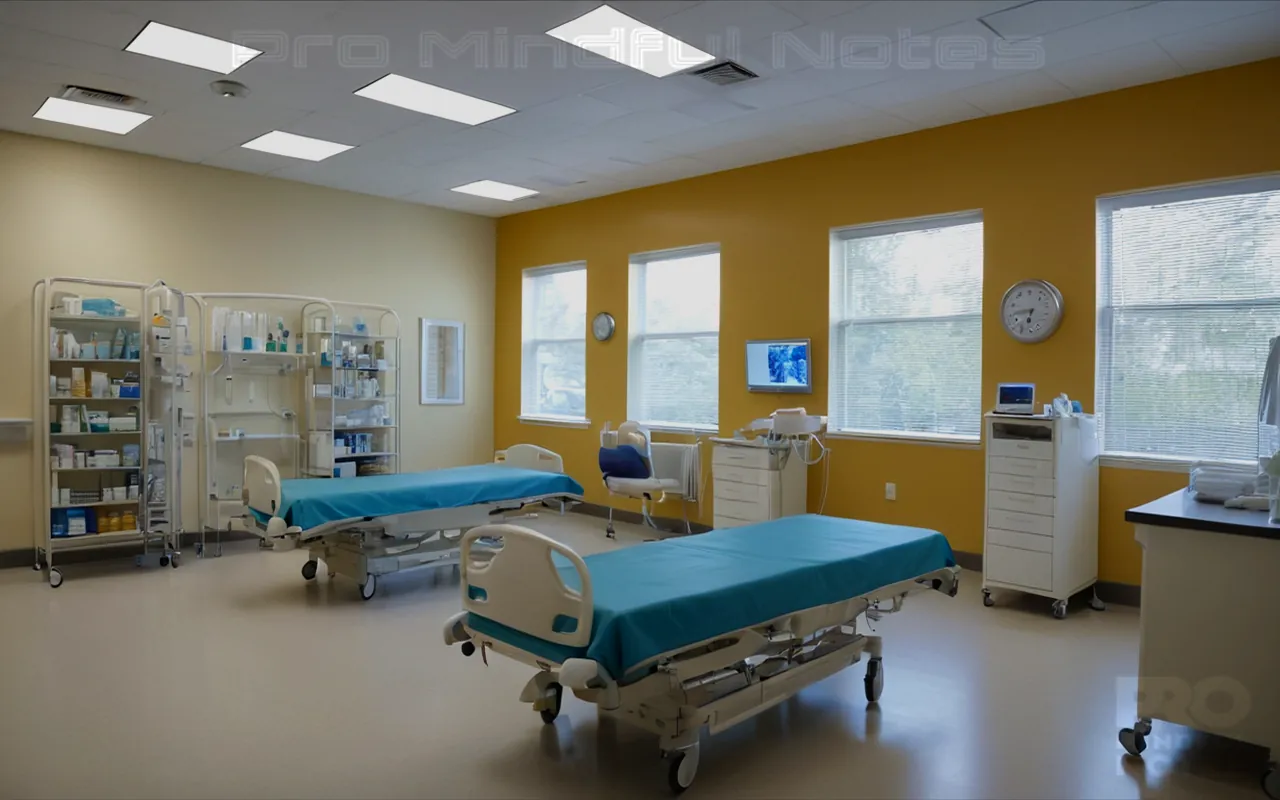Why work at a community health center? Rewards and challenges explored

As healthcare professionals, many of us are drawn to careers that make a meaningful difference in people's lives. For those considering a career in community mental health, community health centers (CHCs) offer a unique and rewarding work environment. In this article, we'll delve into the rewards and challenges of working at CHCs, and explore why they might be an attractive option for those passionate about improving the well-being of underserved communities.
We'll examine the benefits of serving diverse patient populations, contributing to research and policy initiatives, and opportunities for career development and leadership within these organizations. Additionally, we'll discuss some of the challenges that professionals may face when working in community mental health settings, such as inadequate compensation or limited resources. By understanding both the rewards and the challenges, readers will be better equipped to decide if a career at a CHC is right for them.
- The history and purpose of community health centers
- Serving diverse patient populations, including those from low-income backgrounds and with limited access to healthcare
- Contributing to research and policy initiatives focused on improving health outcomes for these communities
- Career development and leadership opportunities within the organization
- Addressing inadequate salary and perceived lack of understanding or value placed on skill sets
- Opportunities for loan repayment through programs like NHSC
- Challenges faced by community health centers, such as funding constraints and burnout among staff
- Ways to overcome these challenges and maintain a fulfilling career in a community health center setting
- Conclusion
- Video about Why work at a community health center? Rewards and challenges explored
The history and purpose of community health centers

Community Health Centers (CHCs) were first developed in the 1960s and 1970s as a response to the growing need for accessible healthcare services, particularly among underserved populations. The establishment of CHCs was driven by Title XIX of the Social Security Act, which provided federal funding for community-based health care programs. This initiative aimed to increase access to preventive care, dental care, mental health services, and other essential medical services for people living in low-income areas.
At their core, CHCs are committed to providing high-quality primary care services to individuals who might otherwise lack access to these vital healthcare resources. Working in community mental health, as well as providing general medical and dental care, are integral components of a CHC's mission. By offering comprehensive health services within a single facility, CHCs can help break down the barriers that often exist between patients and the care they need.
The primary purpose of CHCs is to provide affordable healthcare access to underserved communities, reducing health disparities by bridging gaps in care delivery. This goal is achieved through working in community mental health, as well as other medical specialties such as pediatrics, internal medicine, obstetrics, and more. By doing so, CHCs play a vital role in promoting overall wellness among the most vulnerable populations in society.
Serving diverse patient populations, including those from low-income backgrounds and with limited access to healthcare

is a hallmark of working at a community health center (CHC). CHCs are designed to provide accessible healthcare services to underserved communities, often serving patients who may not have had previous contact with the healthcare system. As a result, CHCs frequently encounter patients with complex medical and social needs, making working in community mental health an essential aspect of their work.
At CHCs, healthcare providers like myself are trained to address these broader social determinants of health, recognizing that physical health is often deeply intertwined with emotional and psychological well-being. By serving diverse patient populations, we gain a unique perspective on the interconnectedness of health and health disparities – and this understanding informs our approach to working in community mental health as we strive to provide care that is tailored to each patient's specific needs.
In many ways, serving diverse patient populations at CHCs represents not only an essential service delivery model but also an opportunity for healthcare providers like myself to grow professionally. By working with patients from different backgrounds and experiences, we gain a deeper understanding of the social and cultural factors that influence health outcomes – knowledge that can inform our practice as working in community mental health specialists and shape policy initiatives aimed at promoting equity in healthcare access and quality.
Contributing to research and policy initiatives focused on improving health outcomes for these communities

is another significant benefit of working at a community health center. As a provider, you'll have the opportunity to be part of a team that's committed to addressing the unique health needs of underserved populations. This can involve collaborating with colleagues from various disciplines to develop and implement programs aimed at reducing health disparities and promoting healthy behaviors.
For example, as a working in community mental health professional, you may participate in research studies designed to improve access to mental health services for low-income individuals or those affected by trauma. Your input can help inform policy decisions that shape the delivery of care within your organization and beyond. By being part of these initiatives, you'll not only be contributing to the greater good but also expanding your own professional expertise.
Moreover, community health centers are often at the forefront of innovative healthcare delivery models, which provides a rich environment for experimentation and evaluation. This can lead to the development of new programs, services, or interventions that have the potential to be replicated in other settings. By being involved in these efforts, you'll have the chance to make a meaningful impact on the health outcomes of vulnerable populations while also advancing your own career goals.
Career development and leadership opportunities within the organization

One of the greatest rewards of working at a community health center is the opportunity for career growth and leadership within the organization. As professionals, we often seek out environments where we can learn and grow alongside our colleagues, and community health centers provide just that. For instance, in working in community mental health, I have had the chance to develop my clinical skills while also taking on administrative roles, such as program director. This has allowed me to gain valuable experience in leadership, policy-making, and strategic planning, which are essential for advancing the mission of the organization.
Community health centers often have a flat organizational structure, which means that there is more room for staff to take on new responsibilities and advance their careers quickly. As a result, employees can move up the ranks and take on leadership positions within the organization, whether it's as a department head or as an executive director. This allows individuals to make meaningful contributions to the organization and to have a direct impact on the delivery of care.
Moreover, community health centers often prioritize staff development and education, providing opportunities for ongoing training and professional development. This may include workshops, conferences, and other educational programs designed specifically for staff members working in working in community mental health or other areas. By investing in their employees' growth and development, community health centers demonstrate a commitment to helping their staff succeed, both within the organization and beyond.
Addressing inadequate salary and perceived lack of understanding or value placed on skill sets

One of the challenges of working at a community health center (CHC) is the often-inadequate salaries offered to healthcare professionals, including those working in community mental health. This can be particularly frustrating for clinicians who are passionate about providing high-quality care to underserved communities, but may not feel fairly compensated for their work.
Despite this challenge, many CHCs continue to struggle with finding ways to attract and retain top talent, particularly in areas such as psychology and social work. As a result, it's essential for these organizations to prioritize skill set development and demonstrate an understanding of the unique value that clinicians bring to the table, including their ability to provide comprehensive care to diverse patient populations working in community mental health.
To address this issue, CHCs may consider offering competitive salaries, benefits packages, and opportunities for professional growth and development. By doing so, they can not only attract top talent but also ensure that their employees feel valued and supported in their work, ultimately leading to improved patient outcomes and a more sustainable workforce.
Opportunities for loan repayment through programs like NHSC

are one of the significant benefits of working at a community health center. The National Health Service Corps (NHSC) offers student loan forgiveness to eligible healthcare providers, including psychologists, who commit to serving underserved communities for a minimum period. This program can be particularly appealing to individuals working in community mental health, where funding and resources may be limited.
For professionals with significant educational debt, the promise of loan repayment can make a substantial difference in their career choices. By committing to serve at a community health center, healthcare providers like psychologists can qualify for forgiveness on up to $120,000 of their student loans through NHSC's Loan Repayment Program. This financial incentive not only helps alleviate the burden of debt but also encourages professionals to pursue careers in community mental health, where they can make a meaningful impact on underserved communities.
Beyond loan repayment, community health centers often provide opportunities for career growth and development, allowing healthcare providers to build their skills and expertise while continuing to serve vulnerable populations. As such, NHSC's Loan Repayment Program serves not only as a financial incentive but also as a testament to the importance of investing in community mental health professionals who are passionate about serving these communities.
Challenges faced by community health centers, such as funding constraints and burnout among staff
Despite the rewards of working at a community health center (CHC), these organizations also face numerous challenges that can impact their ability to deliver quality care to underserved populations. Funding constraints are a major hurdle for CHCs, which often struggle to secure adequate financial resources to support their programs and services. This can lead to difficulties in hiring and retaining staff, particularly in areas such as working in community mental health, where specialized expertise is required.
Additionally, burnout among staff is a significant concern at many CHCs, which often face heavy workloads and limited administrative support. This can result in high turnover rates and decreased job satisfaction, ultimately affecting the quality of care provided to patients. Furthermore, CHCs may also experience challenges related to funding constraints, such as difficulties in purchasing necessary equipment or supplies, or paying for staff training and development programs.
The cumulative effect of these challenges can be overwhelming for CHCs, which often operate on thin margins and are vulnerable to changes in government policies and funding priorities. Despite these obstacles, many healthcare professionals remain committed to working at CHCs because of the opportunity to make a positive difference in the lives of underserved patients and communities.
Ways to overcome these challenges and maintain a fulfilling career in a community health center setting

While working at a community health center (CHC) presents its own unique set of rewards, it's also essential to acknowledge the potential challenges that can arise. One such challenge is the perception that CHCs are not as prestigious or competitive compared to other healthcare settings. However, for many professionals, working in community mental health and serving diverse patient populations can be a source of great fulfillment.
To overcome these challenges, it's crucial to have open and honest discussions with your organization about salary, benefits, and opportunities for career growth and development. CHCs can offer unique benefits, such as the National Health Service Corps (NHSC) loan repayment program, which can help alleviate financial burdens associated with working in a safety-net setting. Additionally, many CHCs have established mentorship programs, leadership training, and professional development initiatives that can support the growth of their staff.
For working in community mental health professionals, it's also essential to stay connected with colleagues who share similar passions and values. Joining professional organizations or networking groups dedicated to community healthcare can provide valuable support, resources, and opportunities for collaboration and knowledge-sharing. By embracing these challenges and leveraging the rewards of working at a CHC, healthcare professionals can maintain a fulfilling career that is both personally and professionally rewarding.
Conclusion
Working in community health centers offers a unique set of rewards that are often overlooked in favor of more traditional hospital settings. The opportunity to serve diverse patient populations, including those from low-income backgrounds and with limited access to healthcare, is a significant draw for many healthcare professionals. For psychologists like the author, working in community mental health can provide a sense of fulfillment that comes from addressing the social determinants of health and promoting overall well-being.
Despite some challenges, such as inadequate salary and a perceived lack of understanding or value placed on their skill set, many healthcare professionals find that the rewards of working at a community health center outweigh these drawbacks. The availability of loan repayment through programs like the National Health Service Corps (NHSC) can also be a significant benefit for those who choose to work in underserved communities. For individuals passionate about addressing health disparities and promoting equity, working in community mental health settings like CHCs may be a natural fit.
Ultimately, community health centers offer a unique blend of clinical practice, research, and policy that can be particularly appealing to healthcare professionals seeking a more holistic approach to patient care. By embracing the challenges and rewards of working at a CHC, professionals can make a meaningful difference in the lives of their patients and contribute to larger efforts to address community health disparities.
Video about Why work at a community health center? Rewards and challenges explored
Leave a Reply


Related Posts